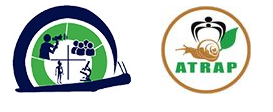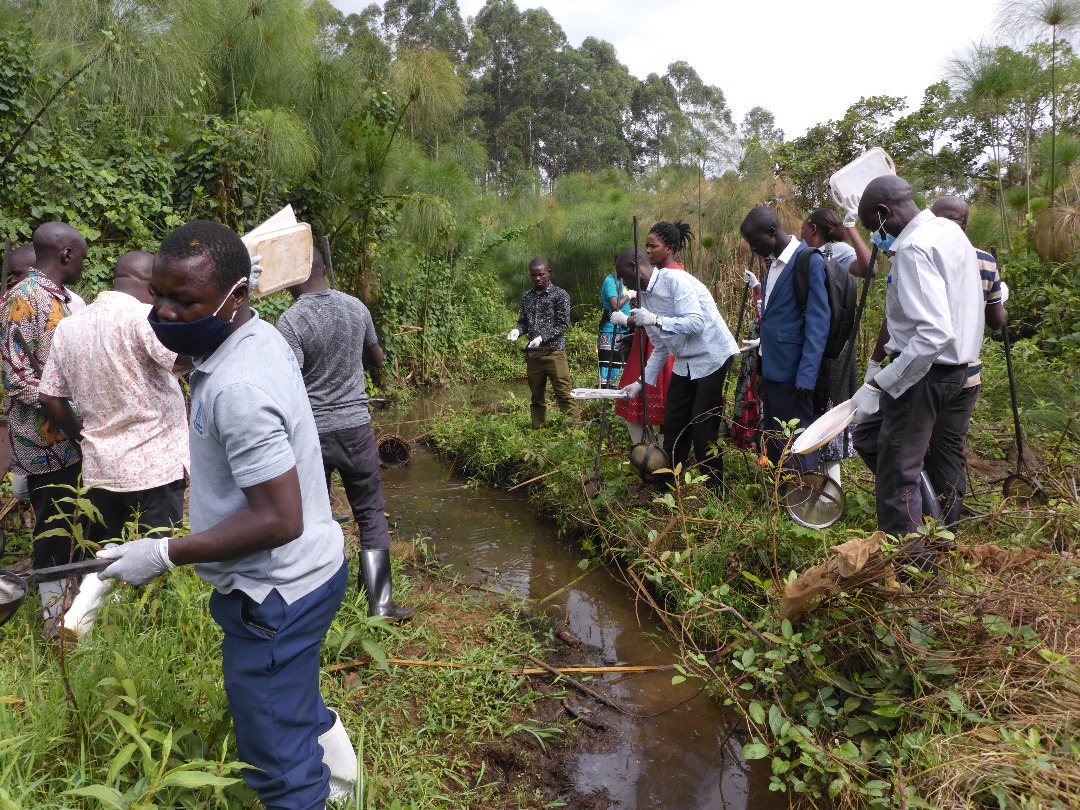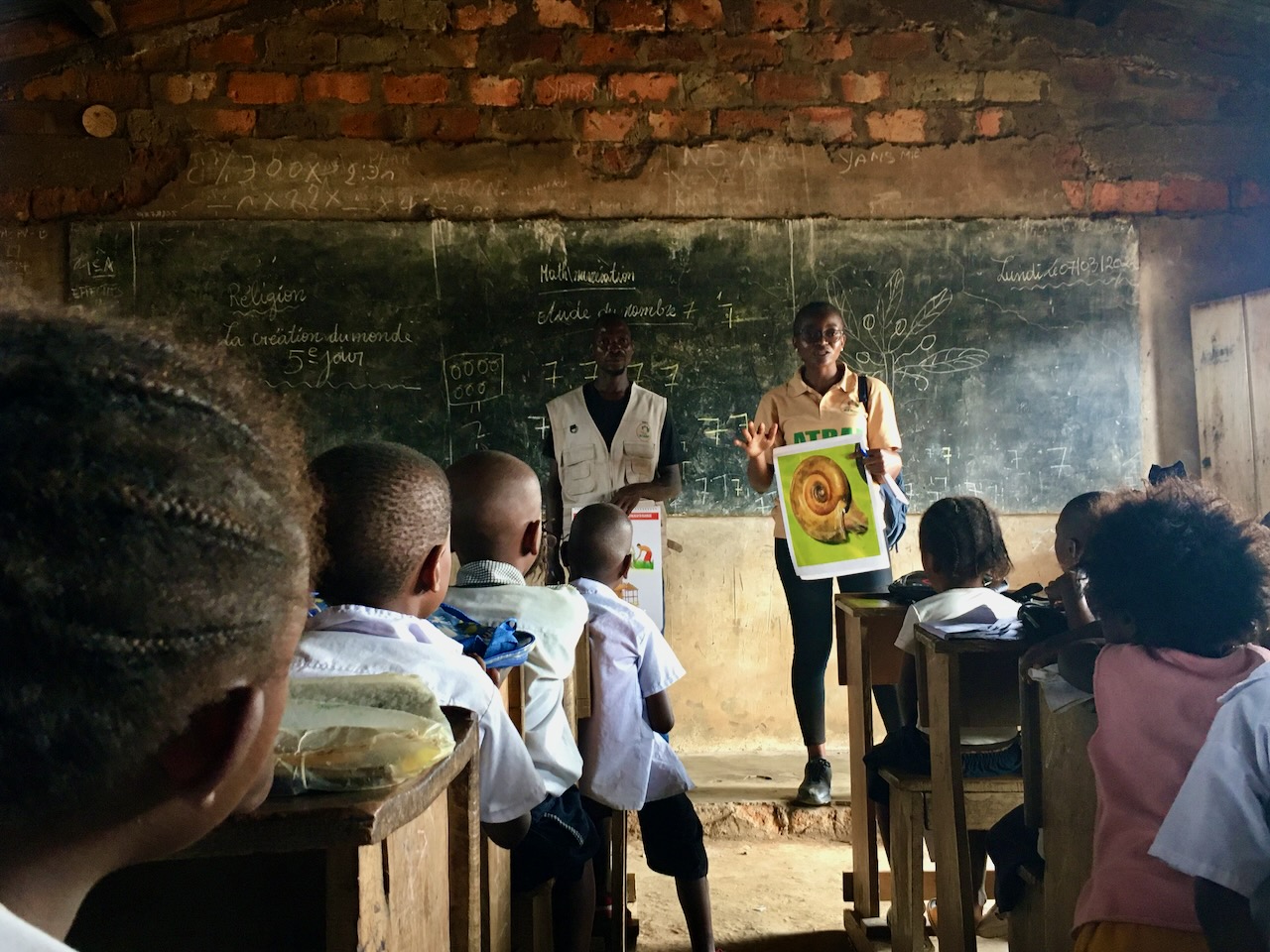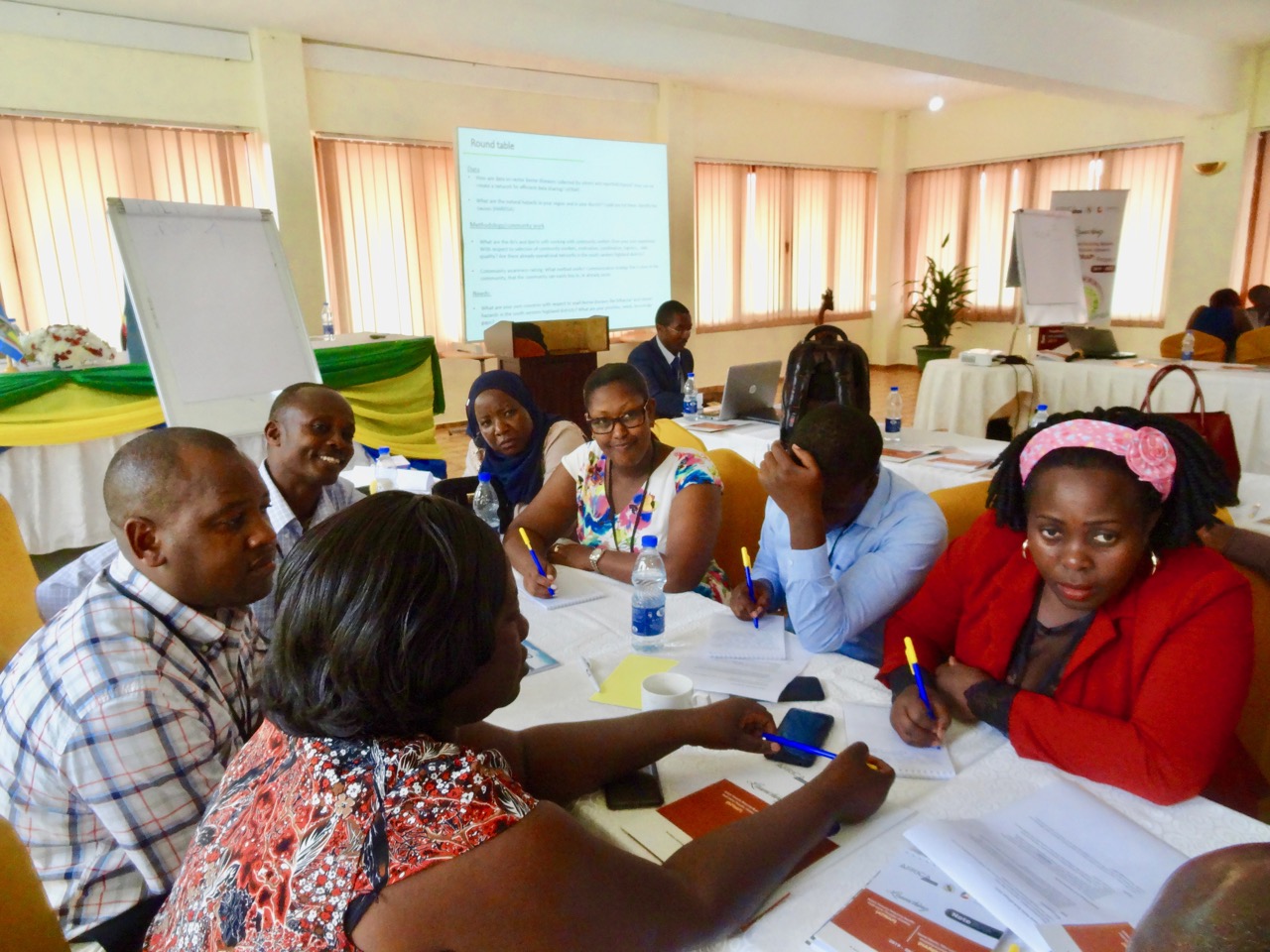Notre approche
Citizen Science: Community-centred, scientifically driven
Our approach is rooted in a simple but powerful idea: the people most affected by snail-borne diseases should be part of the solution. That’s why we embed citizen science into our work, bringing together local community members with experts from different fields, including medicine, anthropology, ecology, epidemiology, and communication. By working side by side, community members and scientists co-create knowledge and co-design disease control interventions.
To achieve this, we train and equip local community members in Uganda and DRC to observe and report the presence of vectors (freshwater snails and mosquitoes), the environmental conditions that support them and risky water practices taking place. The data they generate helps develop high-resolution risk maps of potential transmission sites and raise awareness.
But citizen science in ATRAP goes beyond data collection. The local community members, also called citizen scientists, lead awareness campaigns, organise educational events, and share best practices for preventing infection. This ensures that information is tailored to the local context, trusted and widely shared, laying the foundation for sustainable long-term impact.
Key elements of our approach



